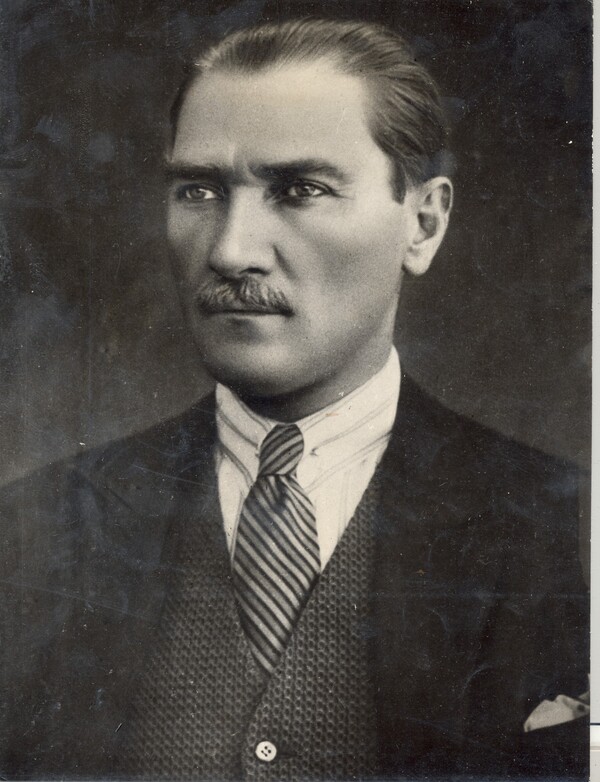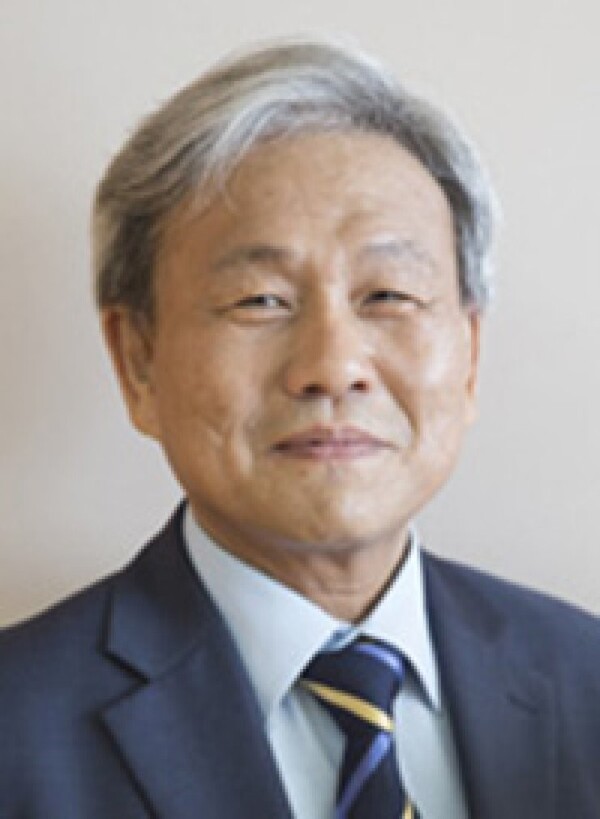. During the Korean War (1950-1953), Türkiye provided the fourth-largest military contingent under the U.N. flag
The Centennial Anniversary of the Founding of the Republic of Türkiye
Firstly, I wish to extend my heartfelt congratulations on the 100th anniversary of the founding of the Republic of Türkiye. Many Koreans consider Türkiye a brother nation due to the strong bond forged in blood. During the Korean War (1950-1953), Türkiye provided the fourth-largest military contingent under the U.N. flag, after the United States, Britain, and Canada, standing alongside the Korean people in their struggle for freedom.
More recently, the close friendship between the two countries was evident during the 2002 World Cup in Korea. The good sportsmanship of the Korean and Türkiye’s teams, as well as the spectators during the 3rd-place match in Seoul, was readily apparent.
In particular, the cultural connection between the two countries dates back to prehistoric times, as their languages both belong to the Altaic language family. While some linguists may disagree about the existence of the Altaic language group, both languages share similarities in terms of phonology and morphology.
For example, the old name of the ancient capital of the Silla Kingdom in Korea was originally "Seorabeol" (Gyeongju), which is similar to the "Sara,"of Türkiye meaning "palaces," while "beol" means city. It can, therefore, be assumed that "Sara Beol" means "the City of the King," as kings usually reside in places with many palaces.
Gyeongju, once the capital of the ancient Silla Kingdom, and Istanbul, the historic capital of the Byzantine and Ottoman Empires, share similarities as significant centers of trade and culture. Although not directly on the Silk Road, they played vital roles in the network of routes that connected Eastern and Western civilizations.
It linked Asia in the East with Europe in the West. Istanbul is commonly viewed as the terminal point of the Silk Road from the West and the starting point from the East, traditionally considered to be Xian, China.
However, recent archaeological and historical studies prove that it was Gyeongju, not Xian, that was the Eastern starting point of the Road. Notably, a considerable number of ancient artifacts, such as glass wares, stone figures, and clay dolls excavated in Gyeongju, show an obvious influence of Persian and Arabian culture. Remarkably, the faces of the two stone warriors standing guard in front of a royal tomb of Silla have Western or Arabian features, demonstrating that the ancient Unified Silla Kingdom engaged in cultural and trade relationships with the Middle East through the Silk Road.
I recently had the pleasure of embarking on a marvelous and fabulous trip to Türkiye, a nation celebrated for its profound historical and cultural heritage. While I may not be an archaeologist or historian by profession, I found myself utterly captivated by the vast and diverse tapestry of ancient Byzantine and Ottoman Empire influences that permeate the country.
Türkiye, without a doubt, serves as a veritable treasure trove of ancient relics and historical sites, each offering a captivating glimpse into its illustrious past.
One cultural heritage site that truly inspired me during my trip was the Goreme Open-Air Museum that is a dazzling display of rock-cut churches adorned with exquisite frescoes, providing insight into early Christian history in Cappadocia. In particular, riding in a hot air balloon provided a magical perspective of the stunning landscape below, all while keeping people warm and cozy in the brisk morning air. The underground cities of Derinkuyu and Kaymaklı, carved into the Cappadocian landscape, exemplify mysterious Byzantine-era engineering.
On the western coast, Ephesus unveils some of the best-preserved Roman structures in the Eastern Mediterranean, including an iconic theater with a capacity of 25,000 seats, the Library of Celsus, and the Temple of Artemis, one of the Seven Wonders of the Ancient World.
In Pamukkale, I had the opportunity to explore the ancient city of Hierapolis, a UNESCO World Heritage Site of great religious and cultural significance in the southwestern region. With its stunning white travertine terraces and thermal springs, I marveled at the remarkably preserved Roman structures, such as the marvelous theater and necropolis with precious stone coffins, where natural beauty intertwined with historical significance. These ancient ruins vividly tell captivating stories of bygone eras, making me feel as though I had stepped back in time and leaving a lasting impression on me.
On the western coast, Ephesus revealed some of the best-preserved Roman ruins in the Eastern Mediterranean, including the iconic Library of Celsus and the Temple of Artemis, one of the Seven Wonders of the Ancient World.
The cultural treasures of Türkiye extend far beyond these regions alone. Istanbul, in particular, stands as a testament to both Byzantine and Ottoman heritage. The Hagia Sophia, a remarkable architectural wonder, encapsulates centuries of history, while the Topkapi Palace houses opulent artifacts from the Ottoman era. Additionally, the Basilica Cistern, also known as the Yerebatan Sarnıcı or the Underground Cistern, is a marvelously preserved historic underground water reservoir, representing distinctive Byzantine architectural heritage.
Throughout my journey, I encountered countless historical and archaeological gems, each with its fabulous story. The distinct cultural heritage of Türkiye reflects its role as a crossroads of civilizations between the East and the West along the Silk Road, making it a unique destination for history and culture enthusiasts..
Coincidentally, during my recent stay in Ankara, I found myself in close proximity to Founding President Mustafa Kemal Atatürk's Memorial Mausoleum, which serves as a poignant reminder of modern inception of Türkiye.

Mustafa Kemal Atatürk (1881-1938) stands as a towering figure in the history of Türkiye, renowned for his pivotal role in the establishment of the Republic of Türkiye, and his transformative leadership. Born in Salonica (now Thessaloniki, Greece), Atatürk's military career began when he entered the Ottoman Military Academy in 1899. He distinguished himself during the Balkan Wars and World War I, earning respect for his strategic acumen and leadership skills.
In the aftermath of World War I, the Ottoman Empire faced occupation by Allied forces, leading Atatürk to emerge as a key figure in the resistance.
In 1919, his remarkable leadership and vision came to the forefront when he convened the Congress in Sivas, laying the foundation for the War of Independence of Türkiye.
Atatürk's strategic brilliance was evident in the successful campaigns against invading forces, particularly the repulsion of the Greek army in the Battle of Sakarya in 1921.
One of Atatürk's most remarkable achievements was the establishment of the Grand National Assembly (TBMM) of Türkiye in Ankara in 1920, which served as a symbolic and functional center for the resistance movement. Under his leadership, the Assembly rejected the harsh terms of the Treaty of Sèvres, a pact between the victorious Allied powers and representatives of the government of Ottoman Türkiye. Instead, they negotiated the more favorable Treaty of Lausanne in 1923, which secured international recognition of sovereignty of Türkiye. As a result, the proclamation of the Republic of Türkiye on October 29, 1923, marked a monumental moment, and Atatürk became its first President. His outstanding leadership extended over four consecutive terms until his passing in 1938. During this period, Atatürk initiated sweeping reforms that reshaped the country’s society and institutions..
One of Atatürk's most impactful legacies is the set of comprehensive reforms known as the 'Six Arrows.' These reforms covered political, social, economic, and cultural aspects.
The President Atatürk aimed to modernize and secularize society of Türkiye, introducing Western legal codes, abolishing the caliphate, and separating religion from the state. The adoption of the Latin alphabet in 1928 replaced the Arabic script, making literacy and education more accessible. Furthermore, Atatürk championed women's rights by granting them the right to vote and run for office in 1934, a pioneering action for the time. His commitment to modernization, gender equality, and democracy positioned him as a symbol of progress.
In addition to his domestic reforms, Atatürk pursued an active foreign policy, fostering diplomatic ties with various nations. His dedication to peace was evident in decision of Türkiye to remain neutral during World War II.
Atatürk's enduring legacy goes beyond his contributions to Türkiye. His principles of secularism, nationalism, and modernization continue to shape identity of Türkiye. Internationally, he is remembered as a remarkable statesman who brought about profound societal reformations, leaving an indelible mark on the global stage. Atatürk's pioneering vision and dedication to progress, democracy, and independence have inspired not only the people of Türkiye but also generations worldwide. If not for the outstanding leadership of the founding President Atatürk, witnessing the emergence of modern marvelous Türkiye might have been difficult.
To celebrate the 100th anniversary of the founding of the Republic of Türkiye, a reception was held on October 30, 2023 at the Shilla Hotel in Seoul, hosted by H.E. Murat Tamer, Ambassador of the Republic of Türkiye to Korea.
As I savor a glass of wine at the Fish Port Restaurant beneath the iconic Galata Bridge in Istanbul, gazing out towards the mesmerizing Bosporus strait, my thoughts wander back to the glorious eras of the Byzantine and Ottoman Empires, as well as modern Türkiye under current leadership of President Recep Tayyip Erdoğan. I find myself reflecting on the noble spirit of the soldiers of Türkiye who played a vital role during the Korean War (1950-1953) to defend Korea, leaving me with a deep sense of admiration.
------------------------------------------------------------------------------------------------------
Choe Chong-dae is President of Dae-Kwang International Co., and director of the Korea-Swedish Association. He is also a long term member of the Royal Asiatic Society, Korea.


